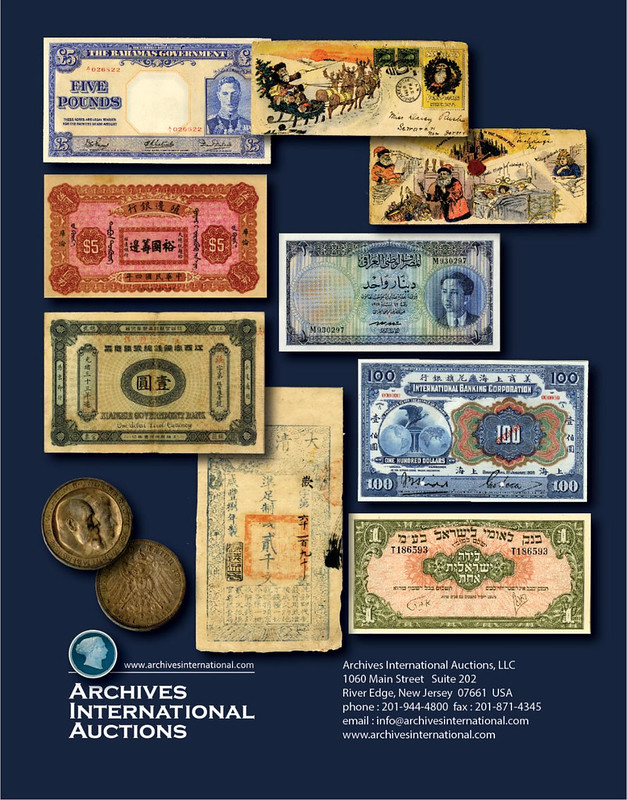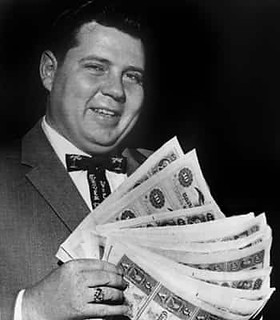
PREV ARTICLE
NEXT ARTICLE
FULL ISSUE
PREV FULL ISSUE
ARTICLE PROFILES GROVER CRISWELLThis article from the St. Pete Catalyst profiles the colorful life of flamboyant dealer and author Grover Criswell. Here's an excerpt - be sure to read the complete article online. -Editor
At Criswell's Money Museum, you could ogle whale tooth money ("Used to buy wives in the Fiji Islands!"), World War I-era German wooden dollars, rai stone currency from the Island of Yap and, of course, examples of that Confederate "funny money" from Criswell's own, extensive collection. An actor in full Confederate military dress greeted you at the entrance. "The museum," believes Criswell's brother Clarence, 84, "just never had enough traffic to pay the overhead. That happens. It was kind of a nifty place, if you liked to look at money." Grover Cleveland Criswell Jr. was, above and beyond his addiction to publicity, a serious collector and scholar. When he died of a heart attack in 1999, at age 65, he had served on the Board of Governors of the American Numismatic Association for 22 years, including a two-year term as president. "I stand on the shoulders of giants, including his," says Pierre Fricke, author of Collecting Confederate Paper Money – Comprehensive Edition and other volumes. "He was a pretty significant leader. He was into Southern States money, too, and both Confederate and Southern States bonds, obsolete bank notes going back to the late 1700s. Those were his mainstays." Criswell, Fricke says, "was the great marketer, the great promoter, of the stuff." He was a familiar figure at coin shows and auctions, and through his mail-order collector business, where he had taken the name Colonel Criswell. He and his brother were born and raised in Chicago, where their dad – a native Tennessean – operated a candy-making business (true to form, when Grover got a few drinks in him, he liked to tell folks that it was a front for Al Capone's bootleg whiskey racket). The family relocated to Florida, buying a house on Pass-a-Grille Beach, in 1946. The brothers each graduated from The Citadel, a Charleston military college, earning degrees in history before returning to Florida. "He and I started out together, late ‘40s, early ‘50s, doing coins and stamps together," younger brother Clarence explains. "Very early on, we did away with the stamps and started to do paper money." From the office they shared in the back room of the Pass-a-Grille home, the Criswell brothers published Confederate And Southern State Currency, A Descriptive Listing in 1957, along with a followup volume. Grover would go on to write numerous books on Civil War-era currency; his identification and cataloging system is still the gold standard for the hobby today.
To read the complete article, see:

Wayne Homren, Editor The Numismatic Bibliomania Society is a non-profit organization promoting numismatic literature. See our web site at coinbooks.org. To submit items for publication in The E-Sylum, write to the Editor at this address: whomren@gmail.com To subscribe go to: https://my.binhost.com/lists/listinfo/esylum All Rights Reserved. NBS Home Page Contact the NBS webmaster 
|
